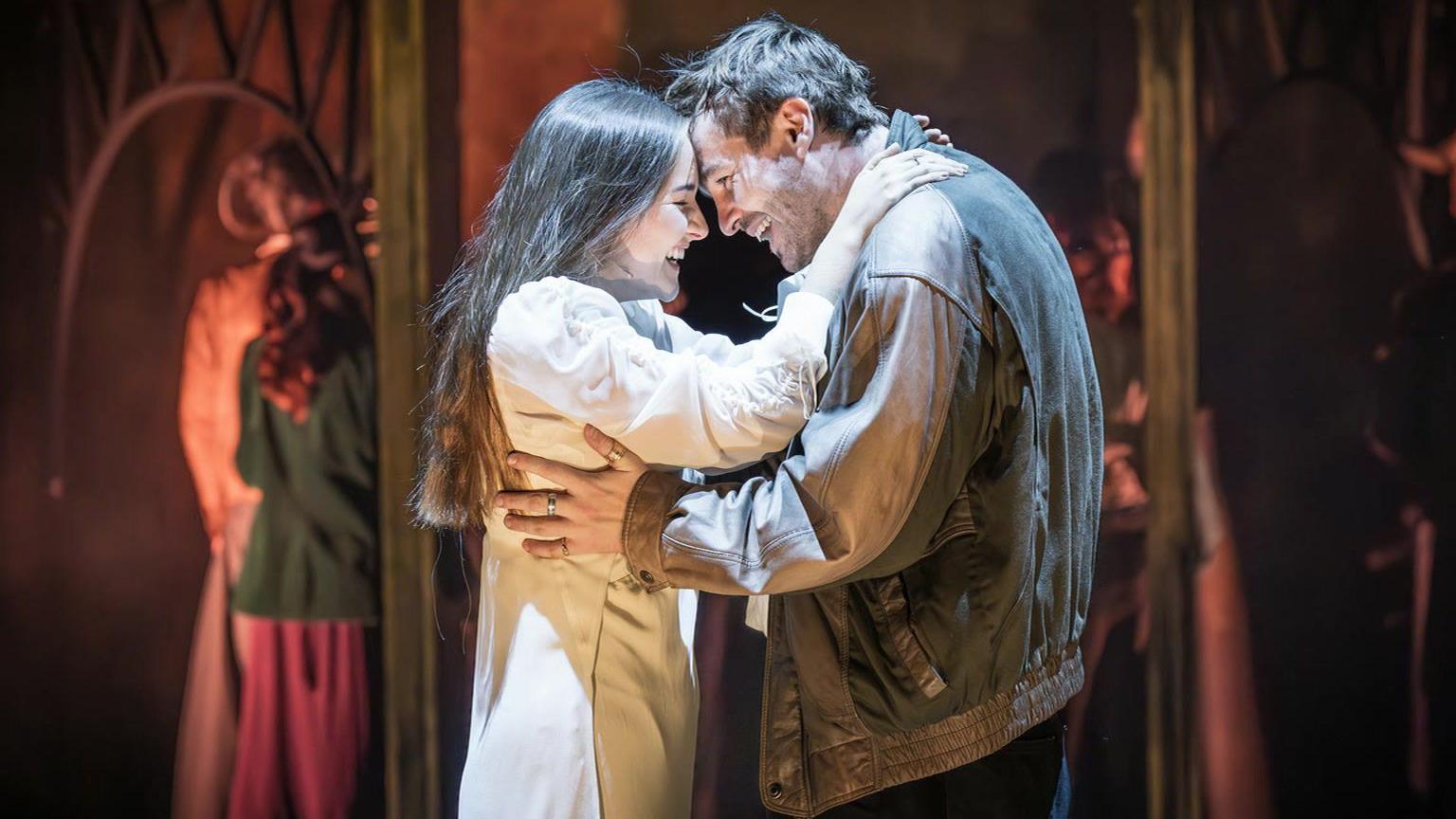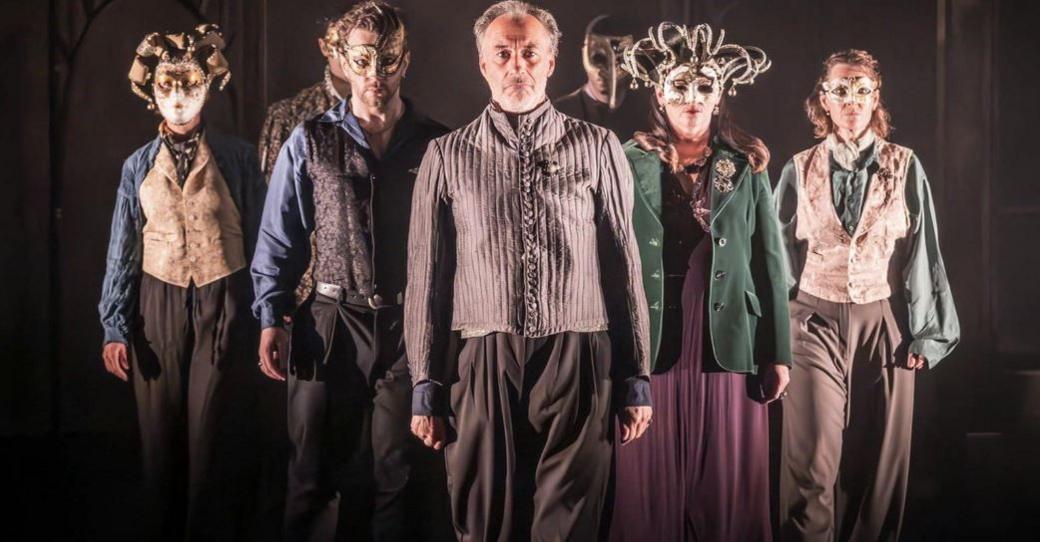World's greatest love story - with a Welsh twist

Shakespeare's love story will use the Welsh and English languages to help illustrate the divide between the families
- Published
It is one of the world's greatest love stories - and Romeo and Juliet is set to get a Welsh twist, with the language heard at the Globe theatre for the first time.
Shakespeare's classic story has been told many times before, of two young lovers, Romeo Montague and Juliet Capulet, whose families are embroiled in a bitter feud.
But Theatr Cymru is gearing up for a unique performance at Shakespeare's Globe, external on the banks of the River Thames in London.
The play follows the couple trying to navigate their divided worlds, highlighted in this production with the feuding families speaking in different languages - the Capulets speaking English and the Montagues Welsh.
Sheen to fund new national theatre for Wales
- Published10 January
Theatre-loving Fizz named UK's cat of the year
- Published24 September
Carmarthen-born actor Steffan Cennydd, who plays Romeo, said being involved in the bilingual production was a "privilege" but also a "responsibility".
He added: "We've got to do a good job so that people think, yeah, we'd like to see more of that, that beautiful language that's just across the border.
"And that's my hope, that we inspire more productions of this nature. I think we're all feeling that. I think we're all feeling the responsibility to make it something special."
Wales' national Welsh language theatre, Theatr Cymru, is set to tell the story from 5 to 8 November, on a candlelit stage which is a recreation of the stages Shakespeare's company would have used.
Theatr Cymru was set up in 2003, and saw the bilingual production as a good way of telling a story it says is a "timeless tragedy bridging cultures and languages".
It has already been on tour around Wales, and Theatr Cymru's artistic director Steffan Donnelly, who is also an associate artist at Shakespeare's Globe, said the response has been "overwhelmingly positive and people have been really interested in it".
But what would Shakespeare himself have thought of this innovative production, and Welsh being heard for the first time at the Globe?
He may not be that surprised as Wales and the Welsh feature in many of his plays.
Notably, with character Glendower, in Henry IV Part 1, based on Owain Glyndwr.
Wales also is one of the central locations in his play Cymbeline.
Mr Donnelly added: "There were probably Welsh speakers within the Shakespeare players, maybe Jack Jones or Henry Evans.
"He also wrote 'the lady speaks in Welsh' for Glyndwr's daughter.
"So we know he would have been very aware of the language."

The cast has been gearing up to perform a unique play in a unique setting
This production features the original Shakespearean English alongside JT Jones' Welsh translation from 1983.
Theatr Cymru's translation app, Sibrwd, will be available to help any audience members who need it.
It tells the lovers' tales and also uses the historic play as a means of reflecting and exploring modern day bilingual society, according to Isabella Colby Browne who plays Juliet.
The actress from Flintshire, who started learning Welsh three years ago, said she was hopeful the audience would understand the play, regardless of their level of Welsh.
She said: "We are putting our heart into this show and representing Wales. We are so proud of our history, our language, our culture.
"Everyone in the cast is using their own accents. So we're representing all of Wales.
"And I'm hoping that because of that and because the story is so well known, whatever level of Welsh the audience have, they're going to understand what we're saying."
The production has already been on tour, but no stage has been quite like this one.
The Sam Wanamaker Playhouse at Shakespeare's Globe is London's only indoor candlelit theatre, and glows with more than 100 beeswax candles.
This is in keeping with the theatre's Shakespeare and his company began using in 1608.
It's an intimate performance space says Mr Donnelly, who added: "You have to lean in to the Wannamaker and feel it pouring all over you.
"We have had to revisit many scenes to make them work for this stage."